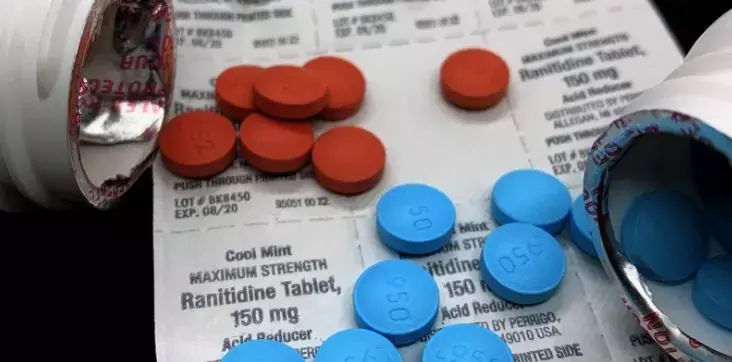- Home
- Medical news & Guidelines
- Anesthesiology
- Cardiology and CTVS
- Critical Care
- Dentistry
- Dermatology
- Diabetes and Endocrinology
- ENT
- Gastroenterology
- Medicine
- Nephrology
- Neurology
- Obstretics-Gynaecology
- Oncology
- Ophthalmology
- Orthopaedics
- Pediatrics-Neonatology
- Psychiatry
- Pulmonology
- Radiology
- Surgery
- Urology
- Laboratory Medicine
- Diet
- Nursing
- Paramedical
- Physiotherapy
- Health news
- Fact Check
- Bone Health Fact Check
- Brain Health Fact Check
- Cancer Related Fact Check
- Child Care Fact Check
- Dental and oral health fact check
- Diabetes and metabolic health fact check
- Diet and Nutrition Fact Check
- Eye and ENT Care Fact Check
- Fitness fact check
- Gut health fact check
- Heart health fact check
- Kidney health fact check
- Medical education fact check
- Men's health fact check
- Respiratory fact check
- Skin and hair care fact check
- Vaccine and Immunization fact check
- Women's health fact check
- AYUSH
- State News
- Andaman and Nicobar Islands
- Andhra Pradesh
- Arunachal Pradesh
- Assam
- Bihar
- Chandigarh
- Chattisgarh
- Dadra and Nagar Haveli
- Daman and Diu
- Delhi
- Goa
- Gujarat
- Haryana
- Himachal Pradesh
- Jammu & Kashmir
- Jharkhand
- Karnataka
- Kerala
- Ladakh
- Lakshadweep
- Madhya Pradesh
- Maharashtra
- Manipur
- Meghalaya
- Mizoram
- Nagaland
- Odisha
- Puducherry
- Punjab
- Rajasthan
- Sikkim
- Tamil Nadu
- Telangana
- Tripura
- Uttar Pradesh
- Uttrakhand
- West Bengal
- Medical Education
- Industry
Oral ranitidine does not increase human carcinogen levels in urine: JAMA

A recent research has pointed out that oral ranitidine (300 mg), compared with placebo, did not significantly increase 24-hour urinary excretion of NDMA when participants consumed noncured-meats or cured-meats diets, thus nullifying the concept that ranitidine is converted to NDMA in a general, healthy population. These findings have been published in JAMA.
In 2019, the US Food and Drug Administration (FDA) received a citizen petition indicating that ranitidine contained the probable human carcinogen N-nitrosodimethylamine (NDMA). In addition, the petitioner proposed that ranitidine could convert to NDMA in humans; however, this was primarily based on a small clinical study that detected an increase in urinary excretion of NDMA after oral ranitidine consumption.
Researchers aimed to evaluate the 24-hour urinary excretion of NDMA after oral administration of ranitidine compared with placebo. For the study design, randomized, double-blind, placebo-controlled, crossover clinical trial at a clinical pharmacology unit (West Bend, Wisconsin) conducted in 18 healthy participants. The study began in June 2020, and the end of participant follow-up was July 1, 2020. Participants were randomized to 1 of 4 treatment sequences and over 4 periods received ranitidine (300 mg) and placebo (randomized order) with a noncured-meats diet and then a cured-meats diet. The cured-meats diet was designed to have higher nitrites, nitrates (nitrate-reducing bacteria can convert nitrates to nitrites), and NDMA. Main Outcome assessed was twenty-four–hour urinary excretion of NDMA.
Results highlighted the key facts.
- Among 18 randomized participants (median age, 33.0 [interquartile range {IQR}, 28.3 to 42.8] years; 9 women [50%]; 7 White [39%], 11 African American [61%]; and 3 Hispanic or Latino ethnicity [17%]), 17 (94%) completed the trial.
- The median 24-hour NDMA urinary excretion values for ranitidine and placebo were 0.6 ng (IQR, 0 to 29.7) and 10.5 ng (IQR, 0 to 17.8), respectively, with a noncured-meats diet and 11.9 ng (IQR, 5.6 to 48.6) and 23.4 ng (IQR, 8.6 to 36.7), respectively, with a cured-meats diet.
- There was no statistically significant difference between ranitidine and placebo in 24-hour urinary excretion of NDMA with a noncured-meats diet (median of the paired differences, 0 [IQR, −6.9 to 0] ng; P = .54) or a cured-meats diet (median of the paired differences, −1.1 [IQR, −9.1 to 11.5] ng; P = .71). No drug-related serious adverse events were reported.
"In this trial that included 18 healthy participants, oral ranitidine (300 mg), compared with placebo, did not significantly increase 24-hour urinary excretion of NDMA when participants consumed noncured-meats or cured-meats diets. These findings do not support that ranitidine is converted to NDMA in a general, healthy population."concluded the team.
For the full article follow the link: doi:10.1001/jama.2021.9199
Source: JAMA
Dr Satabdi Saha (BDS, MDS) is a practicing pediatric dentist with a keen interest in new medical researches and updates. She has completed her BDS from North Bengal Dental College ,Darjeeling. Then she went on to secure an ALL INDIA NEET PG rank and completed her MDS from the first dental college in the country – Dr R. Ahmed Dental College and Hospital. She is currently attached to The Marwari Relief Society Hospital as a consultant along with private practice of 2 years. She has published scientific papers in national and international journals. Her strong passion of sharing knowledge with the medical fraternity has motivated her to be a part of Medical Dialogues.
Dr Kamal Kant Kohli-MBBS, DTCD- a chest specialist with more than 30 years of practice and a flair for writing clinical articles, Dr Kamal Kant Kohli joined Medical Dialogues as a Chief Editor of Medical News. Besides writing articles, as an editor, he proofreads and verifies all the medical content published on Medical Dialogues including those coming from journals, studies,medical conferences,guidelines etc. Email: drkohli@medicaldialogues.in. Contact no. 011-43720751


